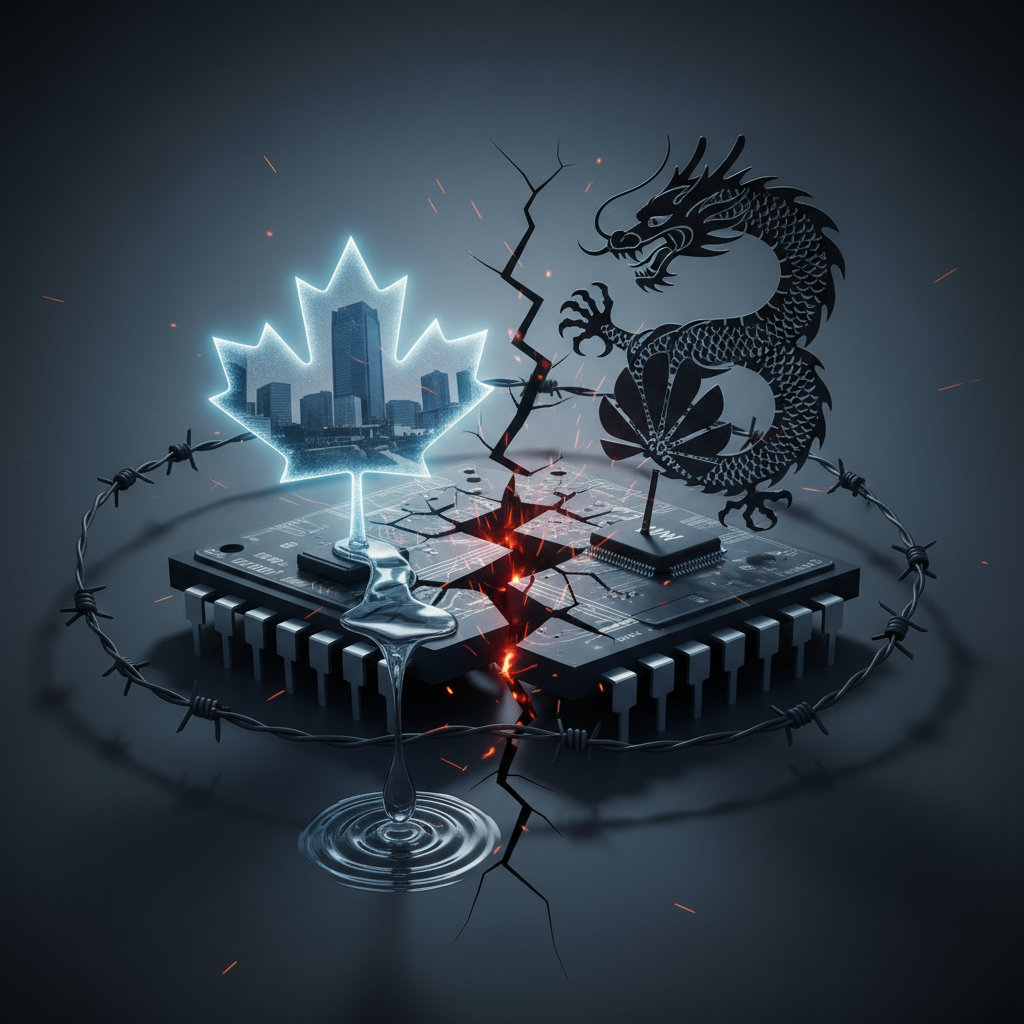When exposing the truth comes at a cost: China blacklists Canadian firm over Huawei chip revelations

In today’s interconnected global economy, transparency and accountability are often hailed as cornerstones of fair trade and ethical business practices. However, what happens when revealing uncomfortable truths about a powerful tech giant leads to severe repercussions? We’re witnessing a prime example of this complex dynamic unfold as China reportedly blacklists a Canadian firm for exposing Huawei’s alleged reliance on foreign-made chips.
This incident isn’t just about microchips; it’s a stark reminder of the geopolitical tensions simmering beneath the surface of technological innovation and global supply chains. It highlights the delicate balance companies must strike when navigating international markets, especially when scrutinizing the practices of state-backed entities. Let’s dive deeper into the implications of this intriguing development.
The Investigation and the Revelation: Unpacking Huawei’s Supply Chain

The story began with a Canadian research firm, whose identity remains a subject of considerable interest, allegedly conducting a deep dive into Huawei’s technological infrastructure. Their focus? The origins of the components powering Huawei’s products. This kind of investigative work is standard practice in competitive industries, where understanding a rival’s capabilities and dependencies can provide crucial insights.
The firm’s findings, according to reports, suggested that despite Huawei’s public narrative of self-sufficiency and indigenous technological prowess, some of its key products were still utilizing foreign-made chips. This revelation likely struck a nerve, particularly given the ongoing global efforts by various nations, including China, to bolster their domestic semiconductor industries and reduce reliance on external suppliers.
For Huawei, a company that has faced intense scrutiny and sanctions from Western governments, including the US, over national security concerns, the optics of relying on foreign chips could be particularly damaging. It potentially undermines its narrative of technological independence and resilience in the face of export controls.
The Blacklisting: A Swift and Severe Response
The response from Beijing to these revelations was reportedly swift and severe. The Canadian firm found itself blacklisted, effectively barring it from doing business in China. This isn’t just a minor inconvenience; for any company with aspirations or existing operations within the vast Chinese market, a blacklisting can be a death knell.
This action sends a clear message: scrutinizing and publicly revealing sensitive information about Chinese tech giants, especially state-backed ones like Huawei, can carry significant consequences. It raises questions about the freedom of speech versus national economic interests, and where the line is drawn when foreign entities operate within China’s sphere of influence.
Such moves also have a chilling effect on other research firms, analysts, and even media organizations considering similar investigations. The fear of reprisal, whether through blacklisting, regulatory hurdles, or even legal action, can deter critical examination of powerful companies and their practices within China.
Geopolitical Chess and the Semiconductor Divide
This incident is not an isolated event; it’s a piece of a much larger geopolitical puzzle. The global competition for technological dominance, particularly in the semiconductor industry, is intensifying. Nations are vying for control over critical supply chains, with chips being at the very heart of modern technology.
The US-China tech war, characterized by export controls, sanctions, and efforts to “decouple” supply chains, has made the origin of every component a critical consideration. Huawei, as a major player in 5G infrastructure and consumer electronics, finds itself at the epicenter of this struggle. When a firm reveals that Huawei might still be dependent on foreign chips despite its claims, it touches upon the very vulnerabilities that nations like the US are trying to exploit.
This blacklisting serves as a powerful illustration of the high stakes involved. It underscores China’s determination to protect its national champions and control the narrative surrounding its technological advancements, even if it means imposing severe penalties on those who challenge that narrative.
Finding the Balance: Transparency vs. Market Access
The predicament of the Canadian firm highlights a growing dilemma for international businesses and research institutions. How do you maintain journalistic integrity, conduct thorough research, or simply offer independent analysis when operating in markets where such activities can be perceived as hostile or detrimental to national interests? The answer, as this case demonstrates, is far from straightforward.
For companies relying on transparency and data-driven insights, the fear of blacklisting can create a dangerous precedent. It could lead to self-censorship, superficial reporting, or a reluctance to engage in deep analytical work, ultimately hindering a comprehensive understanding of global supply chains and technological development.
This event compels us to reflect on the future of international trade, technology, and information flow. As geopolitical tensions continue to shape the global economic landscape, the space for independent scrutiny and critical analysis might unfortunately shrink, paving the way for a more fractured and less transparent international business environment.

